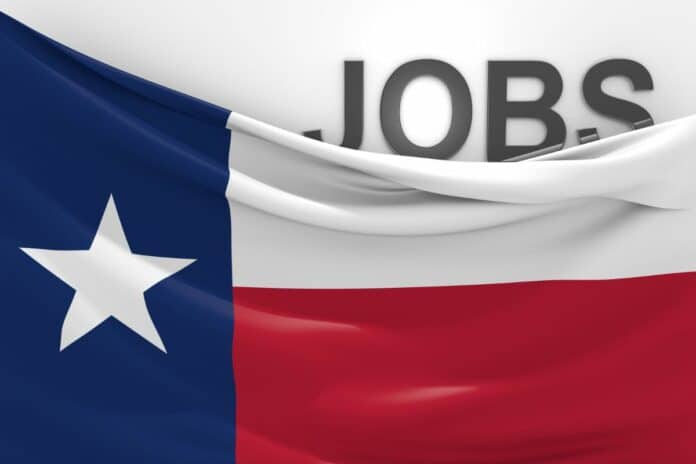During a recent discussion at a Texas Tribune event, Roberto Coronado, the Senior Vice President and Senior Economist at the Federal Reserve Bank of Dallas, shared his insights on the employment outlook for Texas in the last few months of 2023. After experiencing a robust recovery from the pandemic over the past two years, Texas job growth is now preparing for a change in its job market.
Initially, the Dallas Federal Reserve had predicted a 3% job growth rate for Texas in 2023. However, Coronado mentioned that they now expect the growth in the final quarter of the year to be closer to 2%, aligning with the state’s usual trend-level growth rate of 2.1%.
While Texas currently has an unemployment rate of 4.1%, slightly higher than the national average of 3.8%, it has been a leader in job creation over the past year. A recent report from the Department of Labor Statistics indicated that Texas added more than 400,000 new jobs between August 2022 and August 2023.
Coronado attributed this remarkable job growth to the influx of individuals and businesses moving to Texas. He noted that this migration trend gained momentum during and after the pandemic, driven by Texas’s reputation as a cost-effective and business-friendly destination. Additionally, a significant 82% of Texans born in the state continue to reside there, creating a sense of stability and community.
Texas’s economic diversity, spanning from technology hubs in Austin to energy sectors in Corpus Christi, has also played a crucial role in fueling its economic growth. However, signs of change are on the horizon, as rapidly evolving technology and artificial intelligence reshape the job landscape.
Also Read: May Jobs Report Released: Robust Addition of 339,000 Jobs as Unemployment Rate Climbs to 3.7%
Coronado predicts that by 2030, two-thirds of jobs in Texas will require some form of postsecondary education, while only about half of Texans currently possess that level of education. On the flip side, one-third of high-paying, high-demand jobs by 2028 will not require a bachelor’s degree, with many of these positions found in technical fields like manufacturing and construction.
Coronado stressed the importance of community colleges in preparing the state for this transition. He advocated for strong partnerships between community colleges and local businesses to ensure that the workforce can meet the changing demands of the job market.
“In the short term, our focus at the Dallas Fed is on reducing inflation rates to 2%, despite the recent decision by the Federal Reserve not to raise interest rates,” Coronado stated. Historically, increasing interest rates has been a tool used to control inflation.
Over the past two and a half years, demand has consistently outpaced supply across the economy, leading to an increase in inflation. Consequently, the cost of goods and services has risen both nationally and in Texas, affecting the budgets of individuals and putting pressure on businesses.
“What does this mean for the average Texan? It means they are allocating a larger portion of their monthly budget to make ends meet. This added expense puts pressure on households and businesses alike,” Coronado explained. “We believe it’s essential to rein in inflation.”
It’s important to note that The Texas Tribune is a nonprofit and nonpartisan news organization funded by members, foundations, and corporate sponsors. These financial supporters do not have any influence over the Tribune’s journalistic integrity.
This article was first posted at texastribune.org

